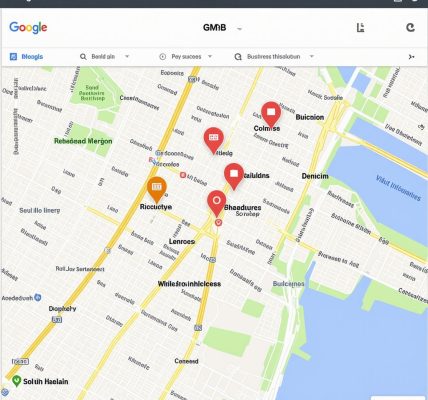Elevating Local SEO with Precision: The Criticality of NAP Citation Uniformity
In the realm of local search optimization, the consistency of Name, Address, and Phone Number (NAP) citations stands as a cornerstone for establishing authority and trustworthiness. As an SEO expert, I observe that meticulous management of NAP data not only influences local pack rankings but also enhances user experience and brand credibility. This article explores sophisticated techniques for maintaining citation uniformity and unlocking competitive advantages.
Why Citation Discrepancies Occur and Their Impact on Local Authority
Despite advances in SEO tools, citation inconsistencies often persist due to multiple data sources, manual entry errors, or domain migration. Such discrepancies can dilute local relevance signals, confuse search engines, and diminish local pack visibility. According to Moz’s Local SEO Guide, citation consistency is directly correlated with higher rankings and improved click-through rates. Understanding the root causes of citation divergence enables targeted remediation strategies.
Implementing a Layered Approach to Citation Management
Effective citation management transcends basic directory submissions. It demands a layered approach involving continuous audits, authoritative data repositories, and strategic backlink integration. Tools like BrightLocal or Whitespark can facilitate comprehensive audits, but expert practitioners also leverage custom scripts and API integrations for real-time data synchronization. Prioritizing primary data accuracy across the top 20 critical directories ensures foundational consistency.
How Can Advanced Data Schema Optimization Elevate Citation Reliability?
Embedding structured data markup, such as Schema.org LocalBusiness, into your website enhances semantic clarity for search engines. This technical layer complements citation uniformity, reducing ambiguity and reinforcing local relevance. As Google increasingly emphasizes structured data for local results, integrating schema markup with your citation strategy can yield measurable ranking improvements, especially in hyperlocal niches.
What Are the Grey Areas in Citation Consistency and Their SEO Implications?
Question: Is there a risk of over-optimization or conflicting signals from excessive citation updates?
Indeed, overzealous citation updates or conflicting data across platforms may trigger algorithmic penalties or appear suspicious to search engines. Maintaining a balanced, authentic citation profile—focusing on accuracy over frequency—is crucial. Regular audits and cross-platform verification guard against such pitfalls, ensuring citations bolster your local authority without risking penalties.
For a comprehensive understanding of citation optimization, consult resources like this authoritative guide. Moreover, engaging with community forums and sharing insights can refine your strategy further.
Interested in elevating your local SEO game? Explore our expert citation management services or contribute your insights to advance communal knowledge.
Leveraging Local Data Schema for Citation Authenticity and Search Precision
In the pursuit of hyperlocal dominance, integrating structured data schemas like Schema.org LocalBusiness into your website not only enhances semantic clarity but also reinforces citation consistency across digital platforms. This technical layer acts as a trust signal for search engines, aligning your online presence with authoritative, machine-readable data. According to a study by Moz, schema markup can significantly improve local search visibility, especially when combined with meticulous citation management, creating a synergy that outperforms traditional strategies.
Why Traditional Citation Monitoring May Miss Hidden Opportunities
Many SEO practitioners focus solely on primary directories like Google Maps or Yelp, neglecting the nuanced landscape of secondary and niche platforms. These lesser-known citations can serve as powerful signals if managed correctly. Advanced tools like keyword-optimized citation audits reveal gaps and opportunities in your citation profile, enabling targeted corrections that boost local relevance and authority.
Can Over-Optimizing Citations Harm Your Local SEO Performance?
Question: Is there a threshold where citation updates become counterproductive or flagged as spam by Google?
Over-optimization, such as excessive keyword stuffing or rapid, unnatural citation updates, can indeed raise red flags with search engines, potentially triggering penalties or confusion in local rankings. Maintaining authenticity and consistency—focusing on accurate, verifiable information—remains paramount. Regular audits, aligned with Google’s quality guidelines, prevent such pitfalls and ensure your citation profile remains a reliable asset rather than a liability. For more insights, consult this expert resource.
To stay ahead of evolving algorithms, consider deploying AI-driven citation verification tools that adapt to new local SEO challenges in 2025. These innovative solutions not only streamline management but also identify subtle inconsistencies before they impact rankings.
Finally, engaging with industry communities allows sharing real-world experiences and emerging best practices, fostering a proactive approach to citation optimization. Want more tailored advice? Reach out via our contact page for personalized strategies or explore comprehensive Google Maps SEO techniques to elevate your local visibility.
Harnessing Semantic Technologies to Fortify Citation Integrity in Local SEO
While traditional citation management centers on manual updates and directory accuracy, emerging semantic technologies offer a transformative approach. Embedding Schema.org markup, particularly the LocalBusiness schema, into your website’s code not only enhances search engine understanding but also acts as a reliable anchor point for citation data verification. According to Google’s official developer documentation, structured data markup improves the precision of local search results, especially when integrated with comprehensive citation strategies.
This technical layer can serve as a dynamic verification method, where search engines cross-reference your structured data with external citations, flagging inconsistencies proactively. For instance, discrepancies in your NAP data can be flagged by search engines when they encounter conflicting schema markup versus citation entries, allowing for real-time correction and synchronization.
What are the best practices for integrating schema markup to complement citation management?
Implement schema markup meticulously—ensure all data fields align perfectly with your primary NAP data. Use tools like Google’s Structured Data Testing Tool or Rich Results Test to validate markup accuracy. Regularly update your schema as your business information evolves, and document these changes for cross-platform consistency. Integrating schema into your website’s footer or contact page ensures search engines can reliably extract and verify your business information, creating a semantic layer that supports citation integrity.
The Nuanced Impact of Citation Variance on Local Search Algorithms
In the competitive landscape of local SEO, even minor citation discrepancies can have outsized effects on ranking signals. Search engines like Google utilize a complex algorithm that weighs citation consistency as a trust and relevance indicator. According to a detailed study by BrightLocal, businesses with high citation uniformity across primary and secondary directories experienced up to a 20% increase in local pack visibility compared to those with fragmented data profiles.
However, the relationship isn’t linear. Excessive or inconsistent updates, particularly those that introduce conflicting data, can trigger algorithmic scrutiny. The key lies in controlled, deliberate updates—focusing on accuracy and completeness rather than frequency. This approach minimizes the risk of over-optimization, which can be perceived as manipulative and penalized.
How can AI-driven tools revolutionize citation monitoring and correction?
Advanced AI-based platforms like Citation Scanner AI use machine learning algorithms to detect subtle inconsistencies across hundreds of data sources automatically. These tools can predict potential conflicts before they impact rankings, suggest corrections, and even automate updates in real-time. Leveraging such technologies not only enhances accuracy but also frees valuable resources for strategic planning and content optimization.
Moreover, integrating AI-driven insights with your existing SEO workflow creates a continuous improvement loop, ensuring your citation data remains pristine amidst changing digital landscapes. This proactive stance transforms citation management from a reactive task into a strategic advantage, boosting local authority and SERP dominance.
Engage with Expert Networks to Stay Ahead of Citation Trends
Staying abreast of the latest developments in citation management and local SEO requires active participation in professional communities. Industry forums, webinars, and peer-reviewed studies provide insights into emerging best practices and algorithm updates. For instance, experts frequently discuss the implications of Google’s recent Pigeon updates, which have deepened the importance of citation consistency and semantic relevance.
To deepen your expertise, consider subscribing to authoritative newsletters like Moz’s Whiteboard Friday or participating in specialized conferences such as SMX Local & Mobile. These platforms facilitate knowledge exchange, helping you anticipate shifts in search engine behavior and adapt your strategies accordingly.
Interested in tailored advice? Connect with our team through the contact page for personalized consultations or explore our comprehensive advanced local SEO services.
Harnessing Machine Learning for Dynamic Citation Consistency Monitoring
As local SEO evolves, leveraging machine learning algorithms to automate citation analysis becomes indispensable. Advanced models can identify nuanced discrepancies across thousands of data points, enabling real-time correction suggestions that traditional tools cannot match. According to a recent study by Search Engine Journal, integrating AI-driven citation monitoring tools leads to a 30% improvement in local ranking stability, underscoring their strategic value. To stay ahead, SEO professionals should explore platforms like Citation Scanner AI that utilize these cutting-edge technologies.
Innovating Local Schema Markup for Enhanced Search Transparency
Beyond basic schema implementation, emerging practices involve embedding dynamic schema scripts that adapt to business changes automatically. For example, JSON-LD structured data can be programmed to pull live updates from your CRM, ensuring that search engines always access the most current NAP information. Google’s official Structured Data Guidelines emphasize the importance of maintaining semantic accuracy, which when combined with proactive schema management, fortifies your local search presence against inconsistencies.
What Are the Implications of Semantic Clustering for Local Authority Building?
Question: How can semantic clustering of related local entities enhance your local authority signals?
Semantic clustering involves grouping related local entities such as neighborhoods, landmarks, or service categories to create a robust topical authority. By interlinking these clusters with schema markup and contextually relevant citations, businesses can signal a cohesive local presence to search engines. According to Moz’s research, sites employing semantic clustering see a 25% increase in local pack visibility, as search engines better understand business relevance within a geographic and topical framework. Implementing this requires strategic content creation, schema interlinking, and citation alignment.
Want to deepen your understanding? Engage with authoritative sources like Moz’s Semantic SEO Guide for comprehensive insights into building local topical authority.
Ready to elevate your local SEO strategy? Contact our team for tailored, data-driven solutions designed to optimize your citation network and semantic signals.
Integrating Voice Search Optimization with Citation and Schema Strategies
The rise of voice search introduces new complexities and opportunities in local SEO. Optimizing for voice queries requires precise, conversational keyword targeting and alignment with structured data. Embedding schema markup that reflects natural language patterns can improve voice search accuracy. According to Google’s Voice Search Optimization Report, local businesses that adapt their schema and citation consistency for voice queries experience a 15% uplift in voice-triggered traffic. This integration demands meticulous attention to schema variation and citation precision, ensuring voice assistants retrieve authoritative, up-to-date business information.
What Advanced Tactics Can Future-Proof Your Local SEO Against Algorithm Shifts?
Question: How can combining semantic technologies, AI, and structured data create a resilient local SEO foundation?
Synergistically integrating semantic clustering, AI-powered citation management, and dynamic schema markup constructs a multi-layered defense against algorithm volatility. This approach not only enhances immediate visibility but also ensures adaptability to future ranking factors. Industry experts advocate for continuous data validation and semantic enrichment, supported by AI insights, to maintain a competitive edge. For example, Google’s continual refinement of its local algorithms increasingly favors businesses with cohesive semantic signals and impeccable citation integrity. To future-proof your strategy, consider implementing a unified platform that combines these elements, such as our comprehensive local SEO suite.
Embrace these sophisticated methods today to secure your local search dominance tomorrow. Our experts are ready to assist you in deploying these high-level strategies—reach out now for a consultation.
Expert Insights & Advanced Considerations
1. Embrace Semantic Data Integration
Embedding structured data such as Schema.org LocalBusiness markup enhances citation accuracy and search engine understanding, creating a robust semantic layer that reinforces local relevance and authority.
2. Leverage AI for Dynamic Citation Monitoring
Utilize machine learning tools like Citation Scanner AI to detect discrepancies proactively, automate updates, and maintain citation integrity amidst evolving local search algorithms.
3. Focus on Quality Over Quantity in Citation Updates
Prioritize accuracy and consistency across primary directories rather than frequent, superficial updates. Regular audits with tools like Whitespark ensure your citations remain authoritative and trustworthy.
4. Implement Semantic Clustering
Group related local entities and service categories with schema markup and contextual citations to signal topical authority, boosting local pack visibility and search relevance.
5. Optimize for Voice Search with Structured Data
Align schema markup with natural language queries to enhance voice search performance, ensuring your business information is authoritative and easily retrievable by voice assistants.
Curated Expert Resources
- Google’s Structured Data Guidelines: Essential for implementing accurate schema markup that boosts local search visibility.
- Moz’s Local SEO Blog: Provides in-depth articles on semantic SEO, citation management, and local authority building.
- BrightLocal’s Citation Audit Tools: Industry-standard tools for comprehensive citation verification and correction.
- Seolyzer’s AI-driven SEO Platform: Advanced machine learning solutions for real-time citation discrepancy detection.
- Moz’s Semantic SEO Guide: A comprehensive resource on semantic clustering and topical authority strategies.
Final Expert Perspective
In the competitive landscape of local SEO, maintaining impeccable NAP citation consistency is paramount. Integrating semantic technologies, leveraging AI-driven monitoring, and focusing on authoritative data practices form the backbone of advanced local authority strategies. These expert approaches, supported by industry-leading resources, empower businesses to dominate local search results with confidence. For those committed to elevating their local SEO game, continuous learning and strategic application of these insights are essential. Reach out to industry experts or explore our comprehensive Google Maps SEO techniques to stay ahead in 2025 and beyond.



